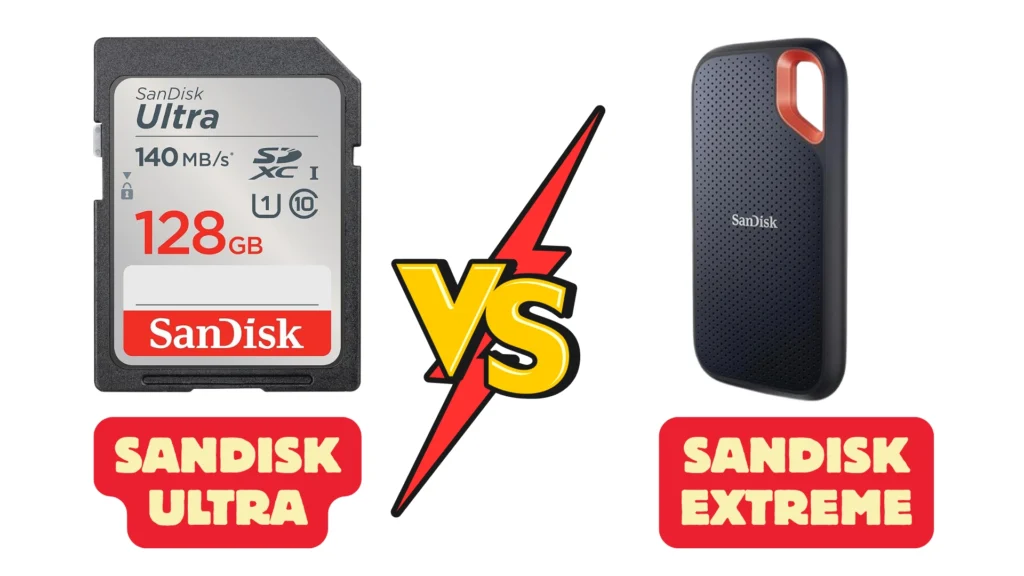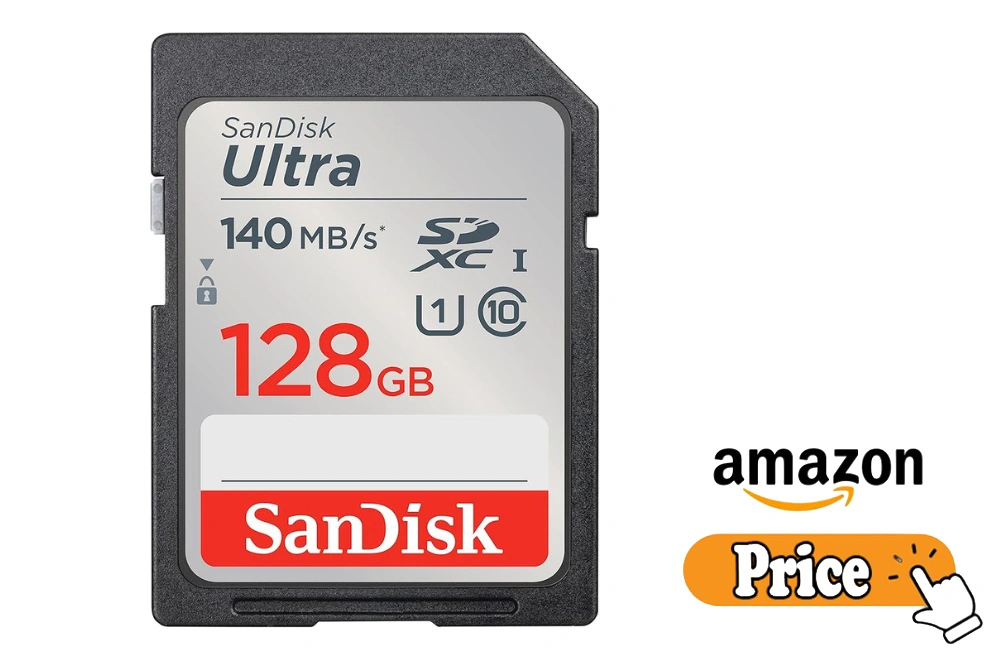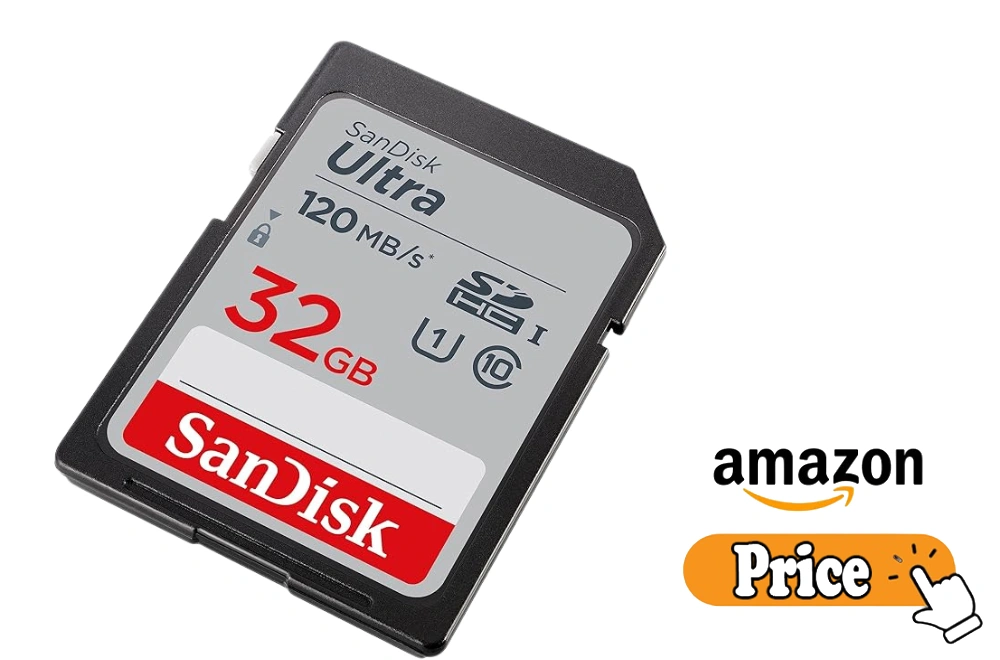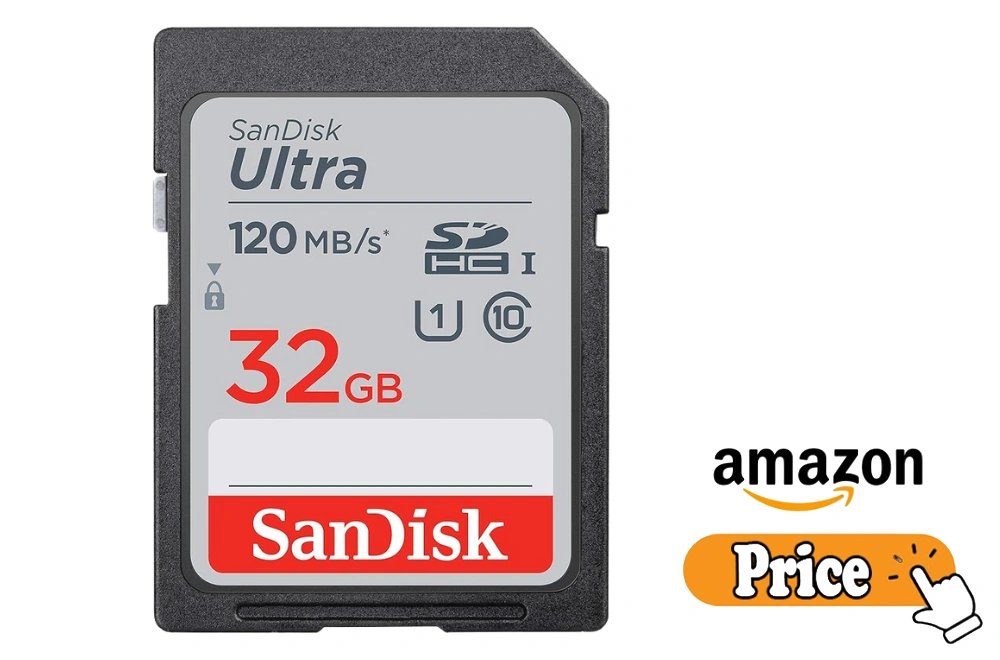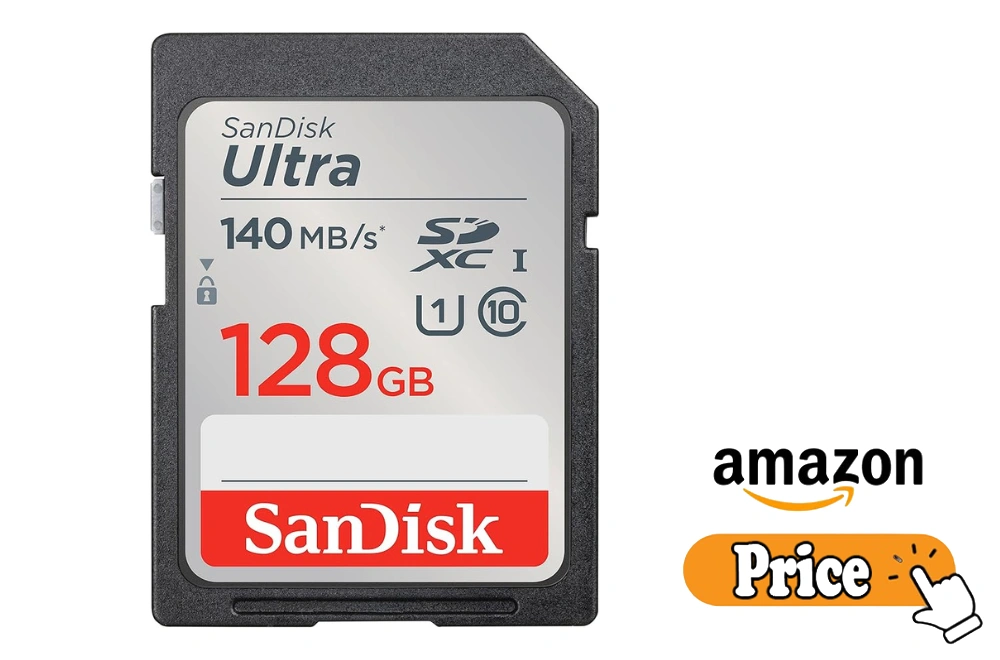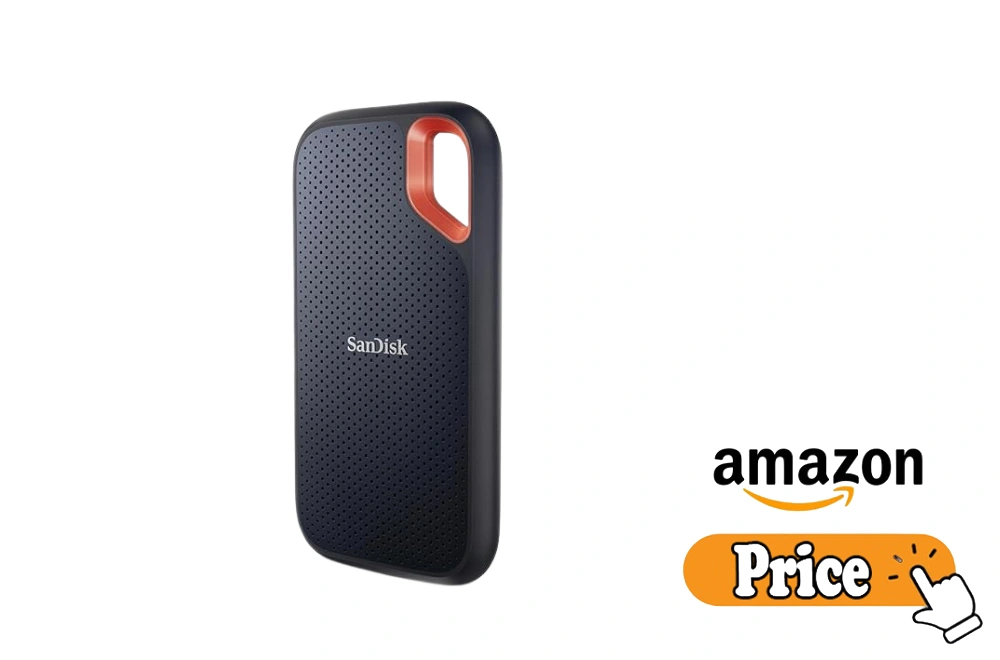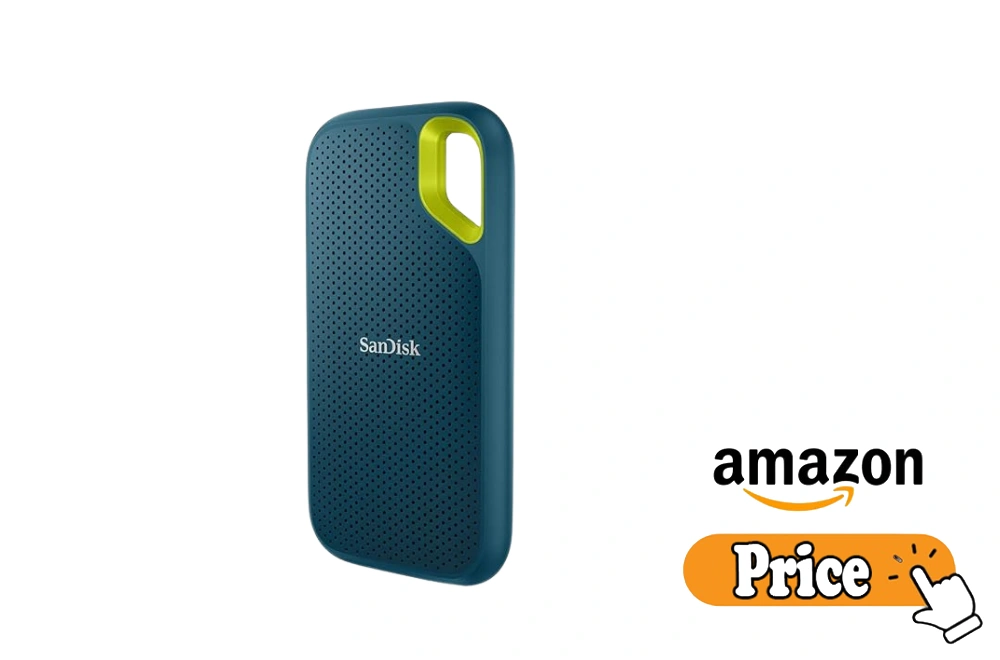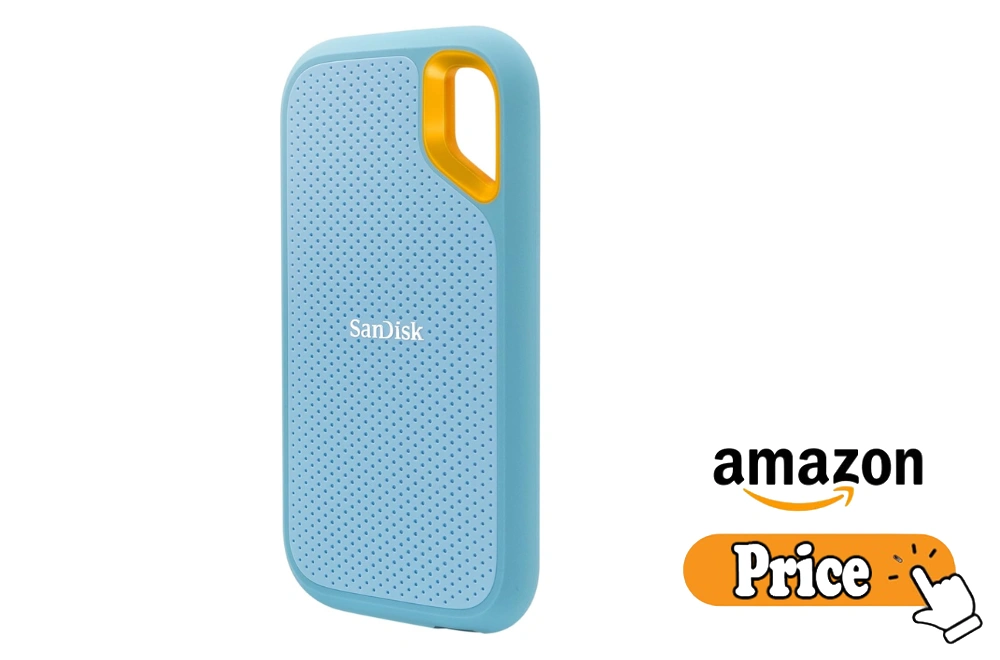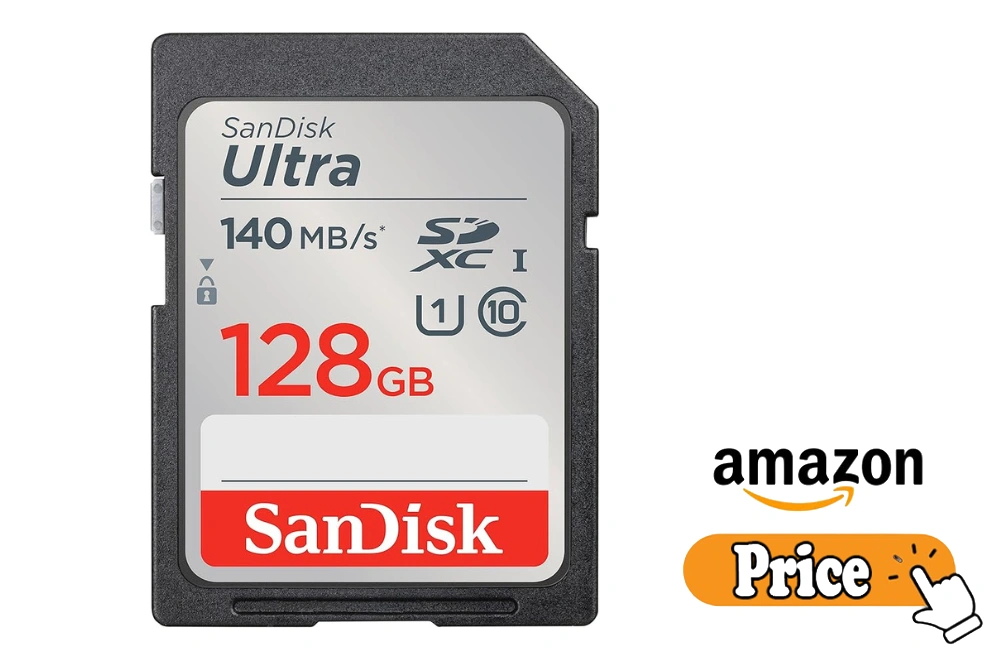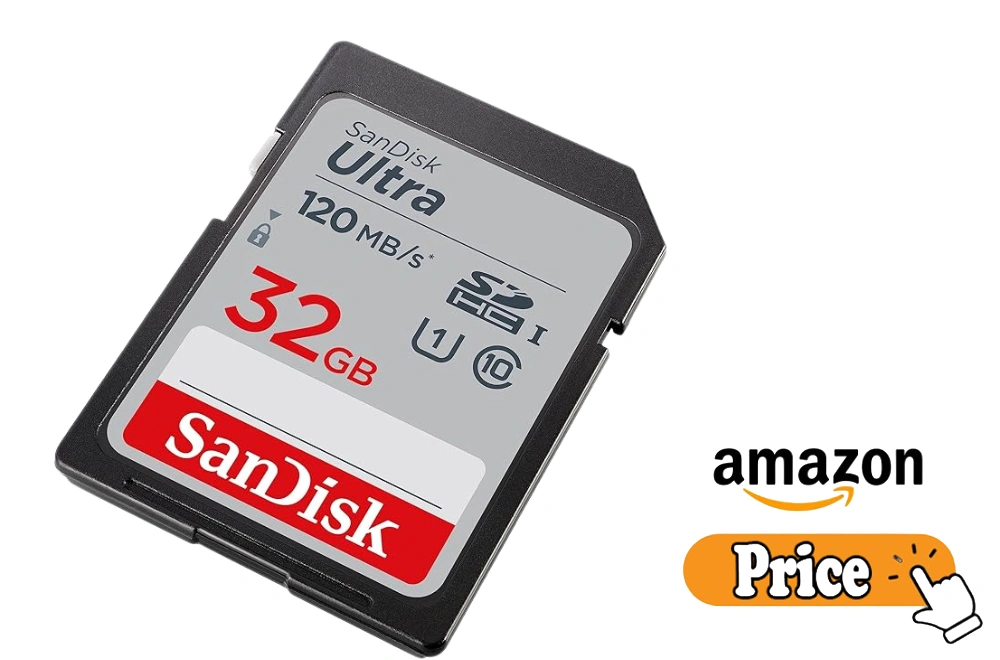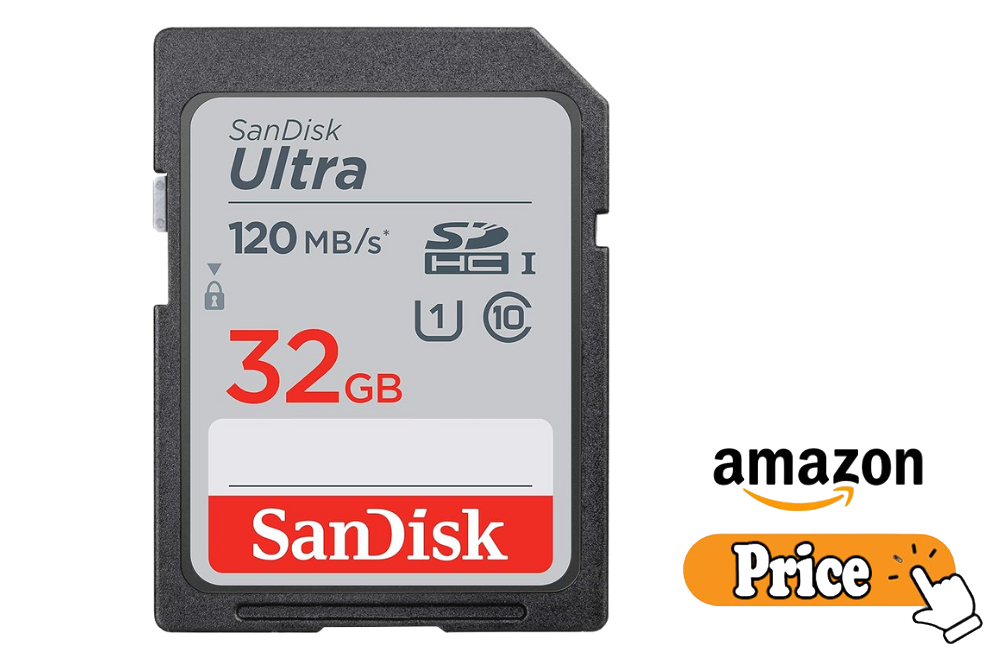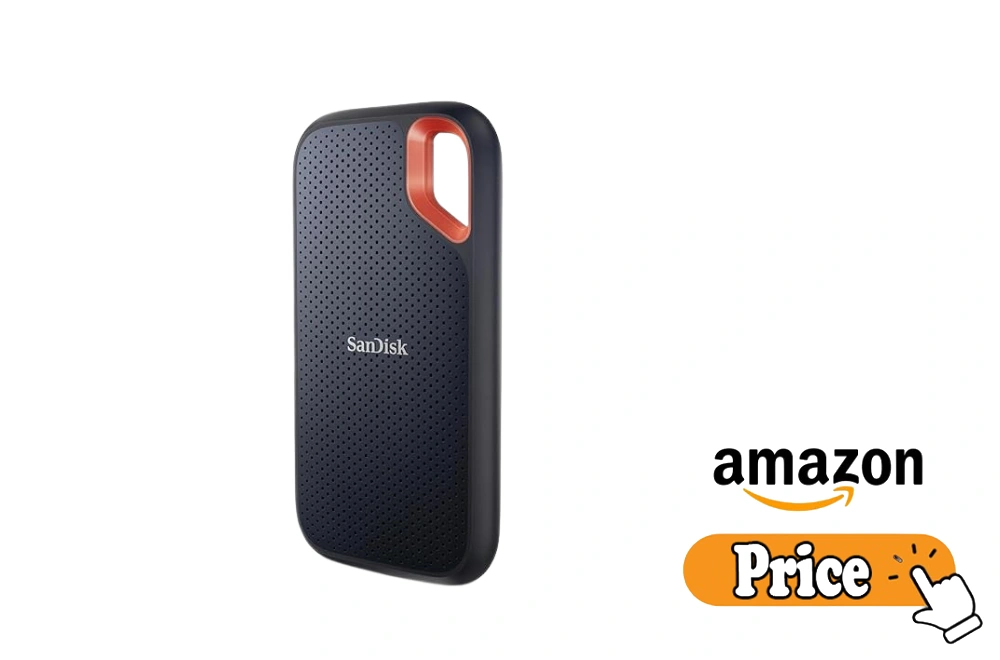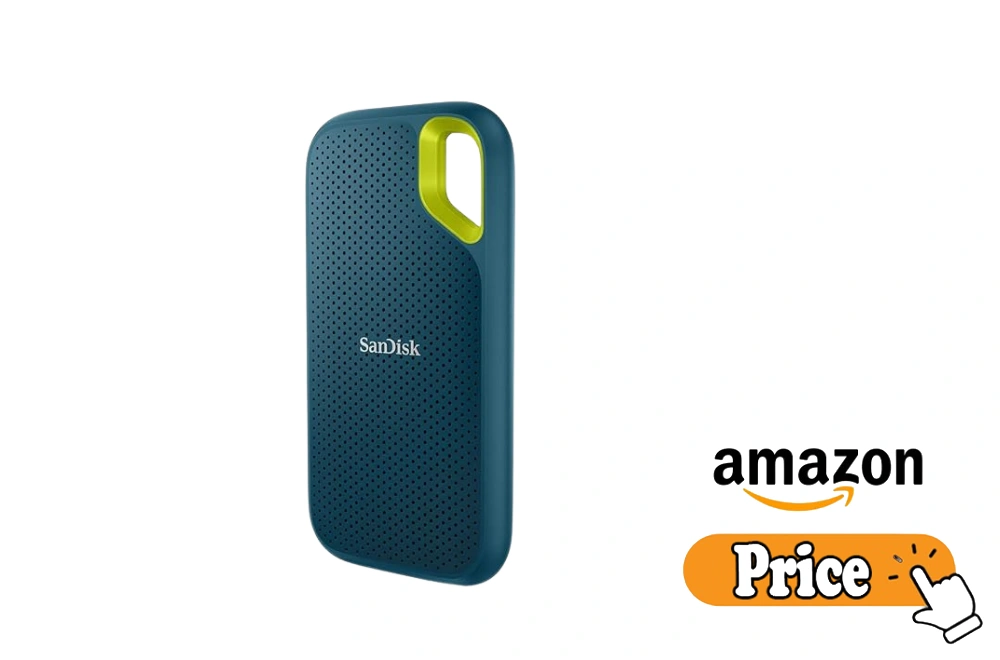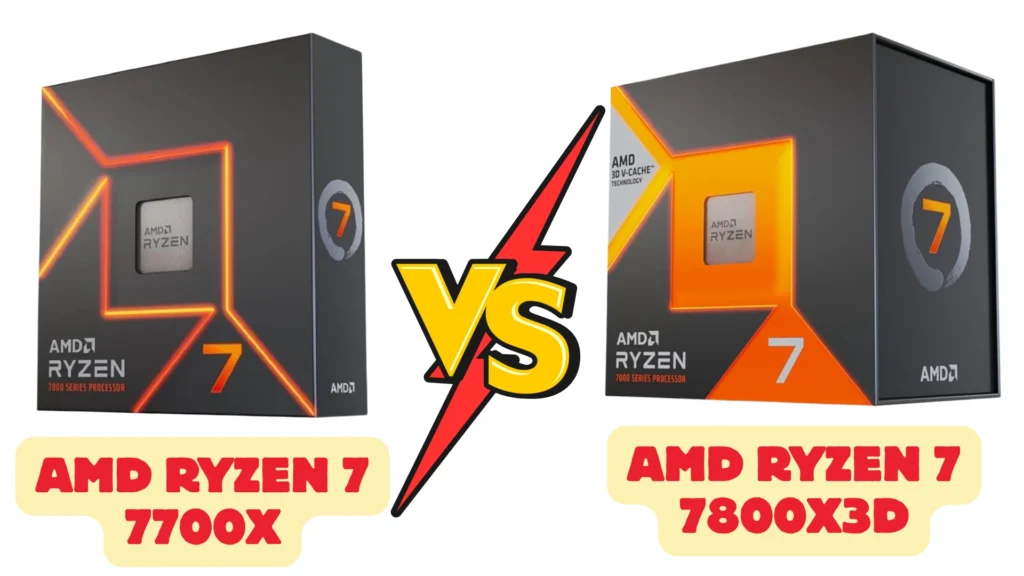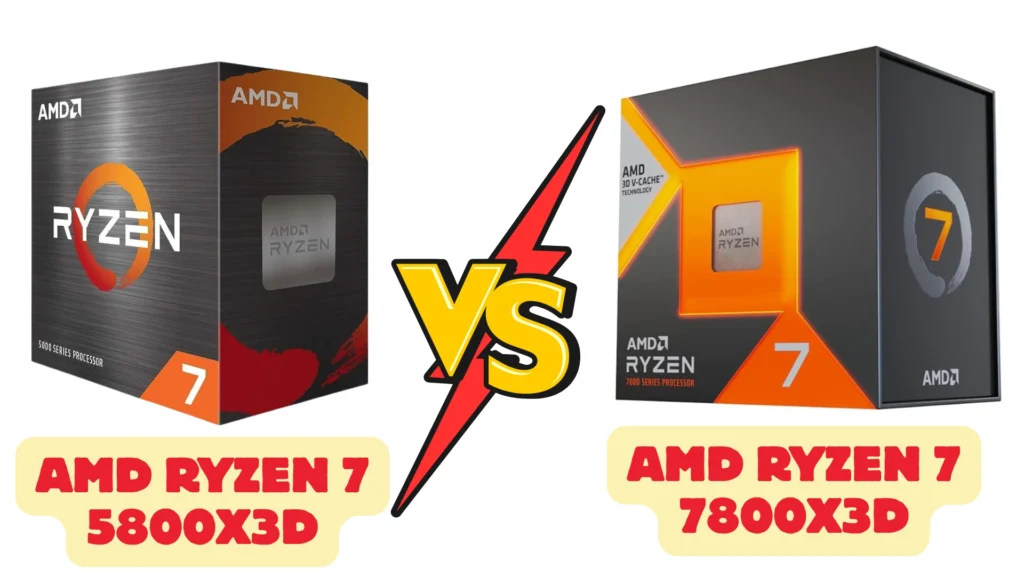You know how storage never feels enough, no matter how much you have? That’s where the Sandisk Ultra comes in—it’s one of those little cards that packs a surprising punch. Over the years, I’ve tried different brands, from Lexar to Samsung, but Sandisk always found its way back into my devices. It’s not just about the space; it’s about how steady it feels when you’re recording videos, moving files, or just trusting your memories to stay safe. I’ve tested it on both old phones and newer ones, and the balance of speed, price, and reliability makes it worth a closer look.
What I Like
Over the years, I’ve come to appreciate the little details that make the Sandisk Ultra stand out. It’s not only about storage; it’s about trust. Here’s what I genuinely like about it:
-
Reliable performance – I’ve never had a single file corrupted, even after moving photos and videos across devices. That peace of mind is priceless.
-
Good value for money – Among all the brands I’ve tried, this card gives the best balance of cost and storage.
-
Works with older devices – I tested it on my old Sony Xperia Z Ultra running Android Lollipop, and it worked without a hitch.
-
Smooth 4K recording – It may not be the fastest card on the market, but it handles 4K video without breaking a sweat.
-
Generous warranty – A 10-year warranty shows confidence in the product and adds a layer of trust for buyers.
What Could Be Better
Of course, no product is perfect, and the Sandisk Ultra is no exception. These are minor points that could improve the experience even more:
-
Write speed could be faster – It works well for everyday use and even 4K video, but heavy creators may want a bit more speed.
-
Not ideal for high-end cameras – If you’re shooting professional 4K or higher bitrate videos, you may need a faster card.
-
Adapter feels basic – The included adapter works, but it’s not the most durable accessory I’ve seen.
These aren’t deal breakers at all—more like little things that remind me why there’s also a “Pro” or “Extreme” version in the lineup.
My Personal Experience
I’ve been using Sandisk products for years, and the Sandisk Ultra has been with me across different phones, cameras, and even laptops. From travel videos to daily backups, it has become one of those accessories I don’t have to think twice about.
Design
At first glance, it’s tiny—almost fragile-looking—but don’t let the size fool you. I’ve swapped it between my Galaxy S9 Plus and my camera countless times, and it still looks new. The design is clean and minimal, which makes it easy to identify among other cards. Compared to bulkier storage options like external drives, this feels like carrying a whole library in your pocket.
Performance
This is where the Sandisk Ultra surprised me the most. In real-world use, the read and write speeds are consistent enough for 4K recording, smooth app transfers, and even large game files. On older phones, it made storage upgrades painless. On newer devices, it kept up with high-resolution video. It may not hit the top speeds of premium cards, but for most people—including me—it’s more than enough.
Build Quality
I’ve dropped it, carried it in my wallet, and even left it in my camera bag for months, yet it always works when I need it. The card feels sturdy despite its size, and the long warranty backs that up. Compared to cheaper, no-name alternatives, the build quality alone makes me stick with Sandisk. It’s like that dependable friend who shows up every time without fuss.
Alternative Option: Samsung
I have been using storage cards for years, testing them on cameras, phones, and even tablets. Over time, I noticed that SanDisk and Samsung often compete head-to-head. Both brands promise speed and reliability, but they shine in slightly different ways.
microSD Samsung vs SanDisk
I tested both Samsung and SanDisk microSD cards in my Galaxy S9 Plus and an older Sony Xperia Z Ultra. Both worked fine with Android Lollipop and newer systems. Samsung cards often show a small edge in speed, while SanDisk Ultra shines in stability and long-term use.
| Feature | SanDisk Ultra (128GB) | Samsung microSD (128GB) |
|---|---|---|
| Read Speed | Up to 100MB/s | Up to 120MB/s |
| Write Speed | Moderate | Slightly faster |
| 4K Video Recording | Stable for Full HD, some 4K | Handles 4K better |
| Warranty | 10 years | 10 years |
| Price (Amazon) | Often lower | Slightly higher |
In short: Samsung gives speed, SanDisk gives trust. I keep SanDisk in my devices for peace of mind.
Alternative Option: Lexar
I tried Lexar cards when I was looking for budget-friendly options. The price was tempting, and the performance was decent. Still, after using SanDisk for years, I could feel the difference in reliability.
Lexar vs SanDisk
I compared a Lexar 128GB card with my SanDisk Ultra while shooting travel videos. Lexar did well for casual use, but during longer 4K video recording, it slowed down. The SanDisk Ultra stayed more consistent, especially with large files.
| Feature | SanDisk Ultra (128GB) | Lexar 128GB microSD |
|---|---|---|
| Read Speed | Up to 100MB/s | Around 95MB/s |
| Write Speed | Moderate | Slower in 4K |
| 4K Video Recording | Handles short clips well | May lag in long clips |
| Warranty | 10 years | Varies (shorter) |
| Price (Amazon) | Fair | Lower |
My take: Lexar is fine for light tasks, but I trust SanDisk Ultra for memories I can’t risk.
Alternative Option: Sandisk Extreme Plus
As someone who records a lot of videos, I had to try the SanDisk Extreme Plus. It’s basically the faster sibling of the SanDisk Ultra.
SanDisk Extreme Plus vs Ultra
I tested both cards side by side while recording 4K video. The Extreme Plus is faster at writing large files, which helps in pro-level use. The Ultra, however, is more budget-friendly and still good for daily tasks like storing photos, apps, and Full HD videos.
| Feature | SanDisk Ultra (128GB) | SanDisk Extreme Plus (128GB) |
|---|---|---|
| Read Speed | Up to 100MB/s | Up to 170MB/s |
| Write Speed | Moderate | Much faster |
| 4K Video Recording | Basic, not pro-level | Handles 4K easily |
| Warranty | 10 years | Lifetime (varies by region) |
| Price (Amazon) | Affordable | Higher |
My Final Thoughts on SanDisk Ultra
If you want a memory card that balances price, speed, and trust, the SanDisk Ultra is a safe choice. It has served me well for photos, apps, and even 4K clips without letting me down. If you need pro-level speed, you may lean toward options like the Extreme Plus. But for everyday use, SanDisk Ultra is like that steady friend—you know it won’t leave you hanging.
Have you ever wondered if your storage can keep up with you? I asked myself the same thing when I first picked up the SanDisk Extreme. At the time, I just needed extra space, but I ended up with so much more.
The first thing I noticed was the speed. It handled photos, music, and even large video files with ease. For me, that made everyday tasks feel lighter.
I’ve used it across different devices, from my Mac to a gaming laptop, and it worked without fuss. That kind of trust builds over time.
Sure, it has its limits, but it also brings real peace of mind. After years of use, I see it less as a tool and more like a travel buddy—always ready, never slowing me down.
If you’re thinking about an external drive, this is one worth knowing about. Let’s dive into the good, the not-so-good, and why it still holds up after years of real use.
What I Like
When I think about the SanDisk Extreme, a few things always come to mind. These are the features that make me reach for it again and again.
-
Fast Speeds – It handles big files like 4K video with no delay. This saves me hours when editing or moving projects.
-
Compact Size – It slips into my pocket like a small wallet. I love this because I can carry work and memories without bulk.
-
Durable Build – The rubberized shell gives peace of mind. I’ve dropped it more times than I’d like to admit, and it still works fine.
-
Cross-Device Friendly – I’ve used it with my Mac, Windows laptop, and even tablets. The USB-C cable makes the switch smooth.
-
Reliable Over Time – After 5 years, it’s still running strong. That kind of trust is rare in tech.
What Could Be Better
Even good products have small quirks. Here are a few things I noticed that could improve, though none are deal breakers.
-
Short Cable – The included USB-C cable feels a little short. A longer one would give more freedom when connecting to desktops.
-
Gets Warm – During heavy 4K editing, it warms up a bit. It still performs well, but I notice the heat.
-
Price Point – Compared to regular drives, it costs more. But for the speed and reliability, I see it as an investment, not a loss.
My Personal Experience
I’ve been using the SanDisk Extreme for more than 2 years, and it has never let me down. From travel to daily work, it feels like a steady partner that always delivers.
Design
The design is simple but smart. Its slim frame and matte finish make it easy to grip. I remember tossing it in my bag during trips without worry. The loop on the corner is like a tiny lifeline—I once clipped it to my backpack, and it felt as safe as my keys.
Performance
This is where it shines the most. Copying large video files, editing 4K footage, or backing up work feels effortless. I’ve used other drives before, but they slowed down when files got heavy. The SanDisk Extreme never gave me that pause of doubt. For creators, students, or travelers, that speed can feel like magic.
Build Quality
The build feels tough yet sleek. It has taken drops, scratches, and even a bit of rain without issues. The rubber edges feel like armor, while the core works like a reliable engine. Compared to cheaper options I’ve owned, this one gives me peace of mind. It’s like having a safety net for your data—always ready when you need it most.
Alternative Option: Samsung SSD
Over the years, I’ve tested many SSDs for my editing and travel setup. Samsung drives are easy to find and reliable. They offer good speed and work well for daily use. For someone like me, who edits 4K videos on the go, they can be a solid choice.
Samsung SSD vs SanDisk Extreme
I’ve used both Samsung and SanDisk drives. Each has its strengths depending on what you need.
| Feature | SanDisk Extreme | Samsung SSD |
|---|---|---|
| Speed (Read/Write) | Excellent for large files & 4K editing | Fast, reliable for everyday use |
| Durability | Rugged, weather-resistant | Sleek, less rugged |
| Portability | Small and light | Slightly heavier |
| Compatibility | Works with Mac, Windows, tablets | Works with Mac & Windows, limited USB-C |
| Price | Mid-range | Slightly higher |
| Long-Term Reliability | 5-year use, minimal issues | Reliable, but slight speed drop over time |
Summary: Samsung SSD is strong, but I prefer SanDisk Extreme for travel and rough use. Samsung is better if you want a sleek design for office or home use.
Alternative Option: Lexar
I’ve also used Lexar drives when moving files between devices. They work well, but I found some models less tough than SanDisk. Still, they can be good if you don’t need heavy-duty durability.
Lexar vs SanDisk Extreme
Here’s my experience with Lexar compared to SanDisk.
| Feature | SanDisk Extreme | Lexar |
|---|---|---|
| Speed | Great for 4K video | Good, slower on large files |
| Durability | Rugged, drop-resistant | Less rugged |
| Portability | Compact, easy to carry | Slightly larger |
| Compatibility | Mac, Windows, USB-C ready | Mac & Windows, limited options |
| Price | Mid-range | Often cheaper |
Summary: Lexar is fine for daily storage. But for travel or active use, SanDisk Extreme feels more reliable.
Alternative Option: SanDisk Extreme Plus
I recently tested the SanDisk Extreme Plus. It is the next version of the Extreme. The speed is a bit higher. For heavy projects, it makes a small but noticeable difference.
SanDisk Extreme Plus vs SanDisk Extreme
Both are strong choices. Here’s how they compare.
| Feature | SanDisk Extreme | SanDisk Extreme Plus |
|---|---|---|
| Speed | Very fast for 4K editing | Slightly faster |
| Durability | Rugged, weather-resistant | Same rugged build |
| Portability | Compact, travel-friendly | Same size & weight |
| Price | Mid-range | Higher for faster speed |
| Use Case | Daily editing, travel | Heavy editing, large projects |
Summary: Extreme Plus is for those moving very large files. For most users, the standard SanDisk Extreme works great at a better price.
My Final Thoughts on SanDisk Extreme
If you’re someone who needs a durable, fast, and portable SSD, SanDisk Extreme could be a perfect fit. It handles 4K video editing, travel, and everyday backups with ease. However, if you prefer a sleeker drive for desk-only use, or want slightly higher speeds for massive projects, exploring the Extreme Plus or other SSD brands might be worth it. From my experience, this drive has lasted over 5 years with almost no issues, surviving drops, bumps, and long workdays. It’s reliable, easy to carry, and a solid choice for anyone who values durability and consistency.
SanDisk Ultra vs Extreme Details Comparison
I’ve been testing these two storage options across my devices for months. Both have strengths, but each shines in different ways. Here’s a detailed, side-by-side look to help you pick the best one.
Tread Design & Grip: SanDisk Ultra vs Extreme
Both cards are easy to handle and fit well in devices. Grip matters when swapping cards fast.
| Feature | SanDisk Ultra | SanDisk Extreme |
|---|---|---|
| Design | Slim and simple | Rubberized, rugged |
| Grip | Easy to insert/remove | Slightly thicker, easier to handle |
| Port Compatibility | MicroSD adapters included | MicroSD + USB-C options |
Rating:
Ultra – 8/10
Extreme – 9/10
Durability & Tread Life: SanDisk Ultra vs Extreme
Durability is key for travel and big file edits. Extreme feels tougher under rough use.
| Feature | SanDisk Ultra | SanDisk Extreme |
|---|---|---|
| Drop Resistance | Moderate | High |
| Water & Dust Resistance | Basic | IP55 rated |
| Long-Term Use | Reliable | Very robust |
Rating:
Ultra – 8/10
Extreme – 9.5/10
Size Variations: SanDisk Ultra vs Extreme
Size matters for portability. Extreme also comes in larger capacities.
| Feature | SanDisk Ultra | SanDisk Extreme |
|---|---|---|
| Capacity Range | 32GB – 256GB | 64GB – 2TB |
| Physical Size | Tiny, pocketable | Slim, ruggedized |
| Port Compatibility | Standard microSD | MicroSD + USB-C drives |
Rating:
Ultra – 8/10
Extreme – 9/10
Off-Road Performance: SanDisk Ultra vs Extreme
Extreme handles rough use better. Ultra is fine for casual travel.
| Feature | SanDisk Ultra | SanDisk Extreme |
|---|---|---|
| Rugged Use | Fine for casual | Excellent, drops & bumps |
| Travel Reliability | Good | Very good |
| Heavy Duty Tasks | Moderate | Strong |
Rating:
Ultra – 7.5/10
Extreme – 9.5/10
On-Road Performance: SanDisk Ultra vs Extreme
Both transfer files smoothly. Extreme is faster for bigger files.
| Feature | SanDisk Ultra | SanDisk Extreme |
|---|---|---|
| Read Speed | Up to 100MB/s | Up to 200MB/s |
| Write Speed | Moderate | Fast, consistent |
| Multi-File Transfer | Smooth | Very smooth |
Rating:
Ultra – 8/10
Extreme – 9/10
Temperature Performance: SanDisk Ultra vs Extreme
Heat can affect speed. Extreme handles high temps better.
| Feature | SanDisk Ultra | SanDisk Extreme |
|---|---|---|
| Heat Management | Moderate | Excellent |
| Heavy Work | Slows slightly | Maintains speed |
| Reliability | Consistent | Very consistent |
Rating:
Ultra – 7.5/10
Extreme – 9/10
Comfort & Noise Levels: SanDisk Ultra vs Extreme
Both are quiet. Perfect for office or travel.
| Feature | SanDisk Ultra | SanDisk Extreme |
|---|---|---|
| Noise | Silent | Silent |
| Heat Comfort | Slight warmth | Minimal warmth |
| Ease of Use | Easy | Very easy |
Rating:
Ultra – 8/10
Extreme – 9/10
Technologies: SanDisk Ultra vs Extreme
Extreme has advanced tech for speed and durability. Ultra focuses on basics.
| Feature | SanDisk Ultra | SanDisk Extreme |
|---|---|---|
| USB-C Compatibility | No | Yes |
| High-Speed NAND | Standard | Advanced |
| Backup & App Support | Basic | Full support |
Rating:
Ultra – 8/10
Extreme – 9.5/10
Costs: SanDisk Ultra vs Extreme
Ultra is cheaper. Extreme costs more but lasts longer and runs faster.
| Feature | SanDisk Ultra | SanDisk Extreme |
|---|---|---|
| Price (Amazon) | Lower | Higher |
| Value for Money | Good | Excellent for heavy users |
| Investment | Moderate | Worth it for long-term use |
Rating:
Ultra – 8/10
Extreme – 9/10
Fuel Efficiency Impact: SanDisk Ultra vs Extreme
Both are power-friendly. Extreme is slightly better under heavy loads.
| Feature | SanDisk Ultra | SanDisk Extreme |
|---|---|---|
| Energy Consumption | Low | Very low |
| Heavy Work Efficiency | Moderate | Excellent |
| Battery Friendly | Yes | Slightly better |
Rating:
Ultra – 8/10
Extreme – 9/10
Longevity & Maintenance: SanDisk Ultra vs Extreme
Extreme lasts longer under heavy use. Ultra is still very reliable.
| Feature | SanDisk Ultra | SanDisk Extreme |
|---|---|---|
| 5-Year Usage | Reliable | Very reliable |
| Maintenance | Minimal | Minimal |
| Warranty | 10 years | 10+ years (depends on region) |
Rating:
Ultra – 8/10
Extreme – 9.5/10
FAQs for Sandisk Ultra vs Extreme
What is the main difference between SanDisk Ultra and Extreme?
SanDisk Ultra is budget-friendly and reliable for everyday storage. Extreme offers faster speeds, rugged design, and better durability for heavy tasks.
Which card is better for 4K video recording?
SanDisk Extreme is ideal for 4K video thanks to higher read/write speeds. Ultra works for Full HD and casual 4K clips.
Can I use both cards with my Mac or Windows PC?
Yes. Both SanDisk Ultra and Extreme are compatible with Mac and Windows devices. Extreme also includes USB-C options for newer systems.
How durable are SanDisk Ultra and Extreme cards?
Ultra is reliable for normal use. Extreme is tougher, with water, dust, and drop resistance for long-term heavy use.
Is it worth paying more for SanDisk Extreme over Ultra?
If you need speed, ruggedness, or large-file handling, Extreme is worth the extra cost. Ultra is perfect for daily backups and moderate use.
Read more:
AMD Ryzen 7 7700x vs 7800x3d: My Honest Verdict
5800x3d vs 7800x3d: Surprising Performance Differences

